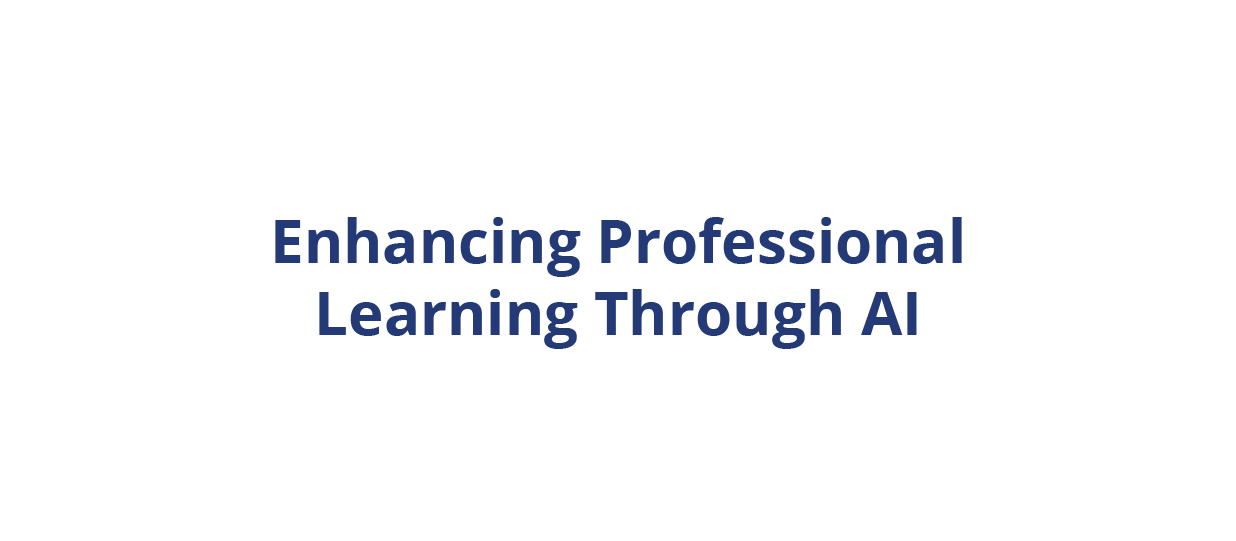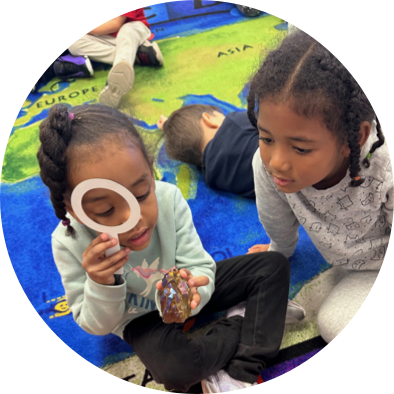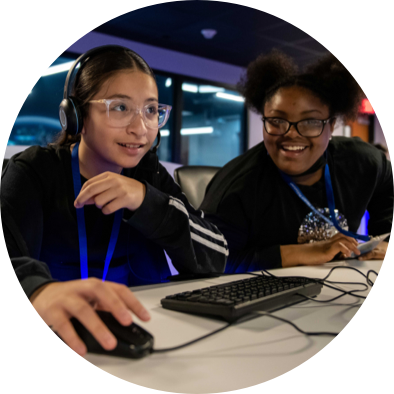Bright Spots
Unlocking Innovation
The Problem
The average district spends $7,700 per teacher on professional learning, yet almost half of teachers, 48 percent, say the professional development they receive or are required to take is irrelevant and not connected to their biggest needs.
The Innovation
Professional learning for educators has remained largely unchanged for decades. The introduction of generative artificial intelligence (genAI) offers the potential to enhance traditional professional learning by providing consistent, impartial, real-time feedback that improves teacher practice—and doing so in a cost-effective way compared to current practices. A number of grantees in the Foundation’s Exceptional Educators portfolio are experimenting with utilizing genAI to help improve instructional coaching and professional learning.
- Leading Educators partners with school systems to provide educators with collaboration structures, curriculum-based professional learning, and targeted support that improve their practice and accelerate learning for students. In 2024, Leading Educators and The Learning Accelerator piloted the School Teams AI Collaborative, a year-long initiative featuring a cohort representing nine cities, 19 schools, and more than 80 participants. Participants are prepared to identify and test genAI-enabled instructional practices that align with schools’ instructional priorities; share learnings; and scale practices that most positively impact teaching and learning.
- Teaching Lab focuses on providing educators with professional learning aligned with high-quality instructional materials and developing teacher leadership capacity to improve student outcomes. Since 2023, the organization has curated a collection of high-quality, curriculum-aligned genAI tools on Teaching Lab Studio, an online hub developed within the Teaching Lab Innovation Studio. The free platform lets teachers use genAI to adapt content to individual students’ needs, while reducing planning time.
- Teaching Matters provides curriculum-based professional learning to schools, delivered through structured coaching relationships and job-embedded support. The nonprofit partnered with TeachFX—an app that utilizes voice AI to assess key indicators of classroom quality—to pilot a new genAI-enabled coaching tool that provides educators with real-time feedback designed to strengthen their instructional practices. During SY 2024-25, the pilot is expected to reach over 35 teachers in five schools.
As AI-enabled professional learning solutions expand to more classrooms, additional evaluation and dissemination of findings are needed to better understand the impact on teaching and, ultimately, student learning.
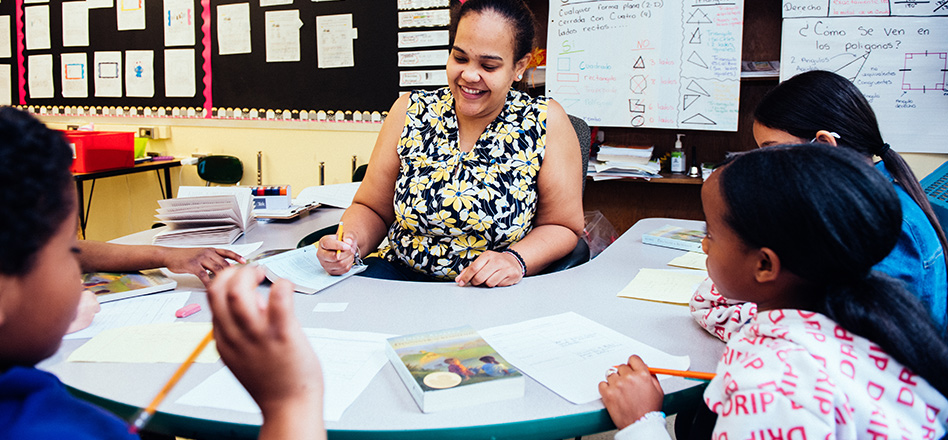
Our Catalytic Role
Overdeck Family Foundation is dedicated to exploring the potential of genAI to advance our mission and make differentiated instruction a real possibility for teachers and students. Over the last year, we’ve invested $3.85 million with the primary purpose of building, scaling, or learning about AI-powered professional learning.
Preliminary research has shown that genAI-based coaching tools can have small effects on targeted teacher practices. To better understand this impact, we invested $900,000 in three studies managed by the Research Partnership for Professional Learning to identify the features and traits of genAI tools that show potential to improve teacher quality and student learning, and disseminate those results to the education community at large. This includes further research on the implementation of coaching routines utilizing the app TeachFX, which has previously been shown to increase teachers’ use of focusing questions that probe students’ thinking by 20 percent. Our hope is that this research can guide future product development decisions across the industry as well as district procurement choices in the years to come.
Enhancing Professional Learning Through AI
PortfolioExceptional Educators
Our Funding to Date$3.85 million since 2024
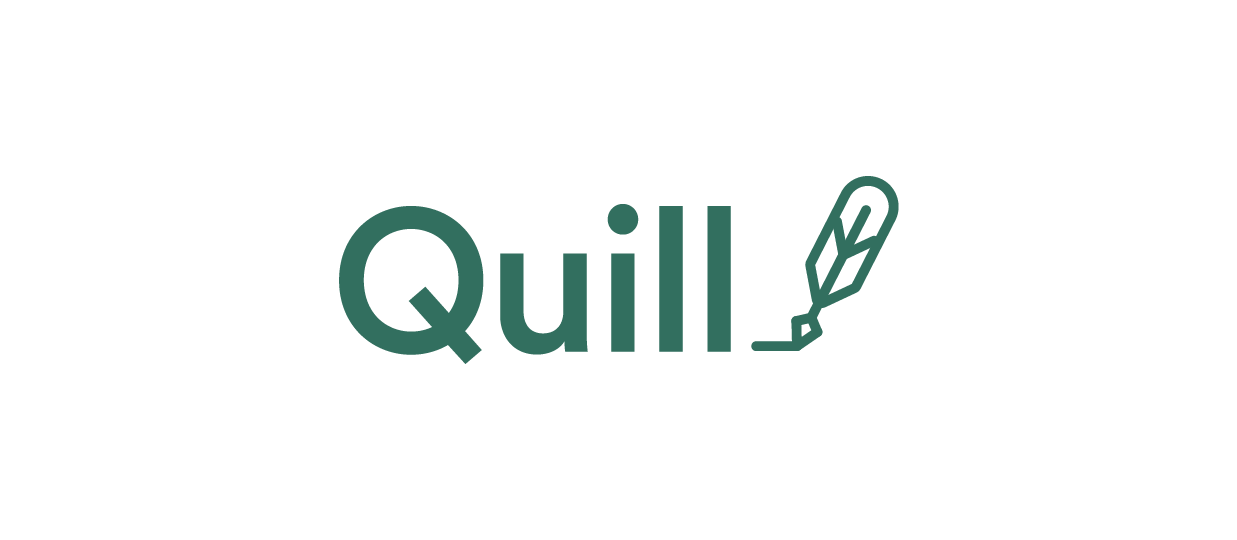
With Overdeck Family Foundation’s support, we developed a strategic plan that helps Quill pivot from predictive AI to generative AI, enabling us to build better learning experiences that accelerate the development of reading, writing, and critical thinking skills. Over the next five years, we expect to reach millions of additional low-income students and attain operational sustainability.—Peter Gault, Co-Founder and Executive Director
The Problem
According to the last National Assessment of Writing, 76 percent of eighth graders were not proficient in writing. Without intervention, students with poor writing skills may struggle to read, which can limit economic and social mobility.
The Innovation
Quill.org’s mission is to help all students become critical thinkers through the practice of reading and writing. The organization’s free online tools use artificial intelligence (AI) to automatically evaluate students’ writing, providing immediate feedback and coaching that helps students revise their work and quickly build writing skills. This personalized and timely feedback, which would be difficult for individual teachers to offer given time constraints, prompts deeper thinking while helping students strengthen their comprehension of complex texts. Over the past year, the organization has also used custom datasets generated from teacher reviews of writing responses to provide more specific feedback to students with increased accuracy and speed.
In 2024, Quill launched several new features to expand its offerings and meet diverse student needs:
- Content for social studies educators, aligned to the OER Project’s 1200 to the Present high school world history course, which engages students in literacy instruction while covering core course content;
- Its first STEM offering, Building AI Knowledge (in partnership with aiEDU), which features activities that introduce students to how AI will impact society over the next decade; and
- A new Spanish language functionality, which supports students to write prompts in English while they receive instruction and feedback in Spanish.
Since its founding in 2014, 10 million students have written two billion sentences on the Quill platform. The organization continues to grow year-over-year, particularly with low-income students. An external evaluation conducted by the College Board in 2023 found that Quill improved high school students’ writing skills by 25 percent.
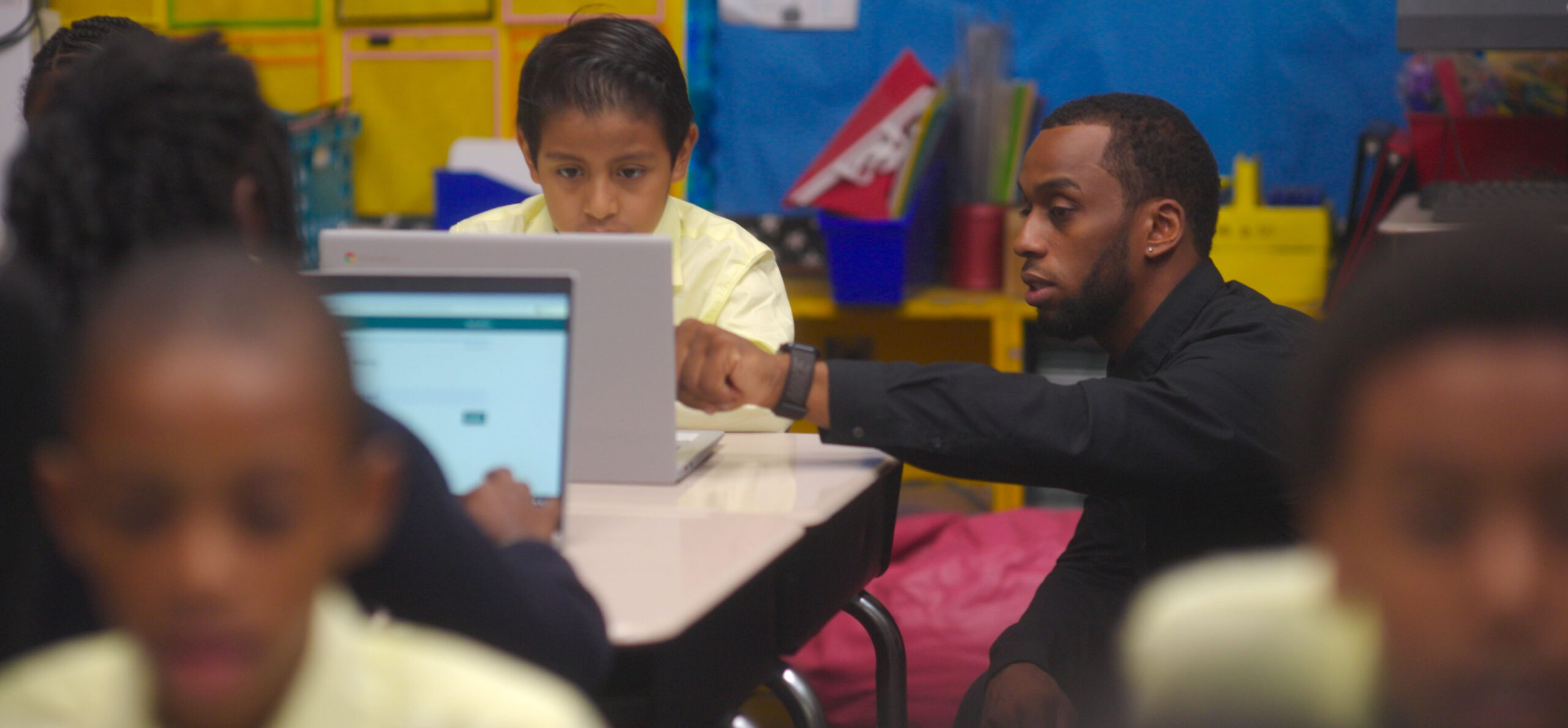
Our Catalytic Role
Overdeck Family Foundation’s multi-year general operating support has enabled Quill to develop new partnerships with curriculum providers and launch additional prototypes designed to increase writing skills and improve comprehension. Internal advisory and external capacity-building support have also helped the team develop a go-to-market strategy and build revenue capacity.

Peter GaultCo-Founder and Executive Director
Peter Gault is the Co-Founder and Executive Director of Quill.org, a nonprofit building free online learning tools that use AI to provide students with immediate feedback and coaching on their writing. Fast Company recognized Quill as one of the Top 10 Most Innovative Education Companies of 2018.
Quill.org
PortfolioInnovative Schools
Our Funding to Date$2,546,000 since 2022
Founded2014
HQNew York, NY
Websitequill.org
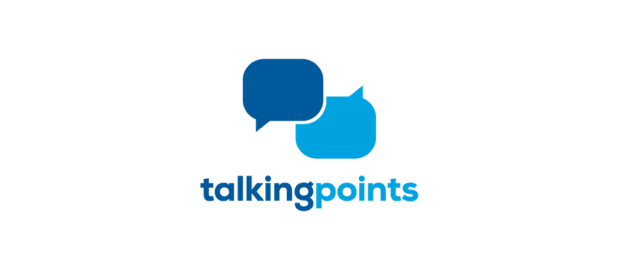
TalkingPoints wouldn’t be where it is today without Overdeck Family Foundation. Through their early and ongoing support, we’ve been able to innovate and build our evidence base, and meaningfully move the needle on areas like chronic absenteeism, leading to improved outcomes for millions of students.—Heejae Lim, Founder and CEO
The Problem
Research shows that family engagement matters for student success—students of all ages whose families are engaged have stronger social-emotional development, higher school attendance, and better academic outcomes. However, while all families want to help their children succeed, they often face barriers. These include language—22 percent of students speak a language other than English at home—in addition to lack of time, trusting relationships with teachers and schools, and awareness of how to help.
The Innovation
TalkingPoints is a tech-enabled family engagement solution that empowers educators to build effective family-school partnerships through two-way communication in 150+ languages, coaching for schools and families to improve student outcomes, and actionable data on student progress. TalkingPoints also provides educators with best-practice guidance and time-saving tools to make communication and supporting student learning more effective and efficient. Over the past year, the organization grew its reach by 25 percent and now serves over four million students.
With the advancement of technology and the addition of generative artificial intelligence (genAI), TalkingPoints has expanded its original product and is experimenting with in-the-moment suggestions and guidance for both teachers and families that can help improve family engagement and student learning. These include:
- A real-time “message mentor” that simplifies communication by helping teachers instantly transform messages to parents and caregivers, utilizing the best practices of family engagement to make them more positive, asset-based, and accessible;
- A personalized activities generator aligned with grade-level work and curriculum standards, making it simpler for teachers to guide families in engaging their children in activities aligned with what they are learning at school; and
- An attendance toolkit that allows for tracking and family reporting, making it easy to send schoolwide messages to educate families about the role consistent attendance plays in student outcomes and provide actionable steps for families to take.
These innovations, many of which TalkingPoints founder and CEO Heejae Lim discussed in a “Spotlight On Growth” interview earlier this year, are expected to deepen TalkingPoints’ impact and ensure the product remains relevant and responsive to schools and districts. For example, TalkingPoints was inspired to create the attendance toolkit based on district needs, as well as previous research demonstrating its impact on attendance. A 2024 study done in Tulsa Public Schools, a large, urban school district, found that schools using TalkingPoints saw an average 24 percent decrease in student absenteeism rates. This research builds on a previous study finding that adoption of TalkingPoints was associated with a 15 percent decrease in absenteeism in another large urban district.
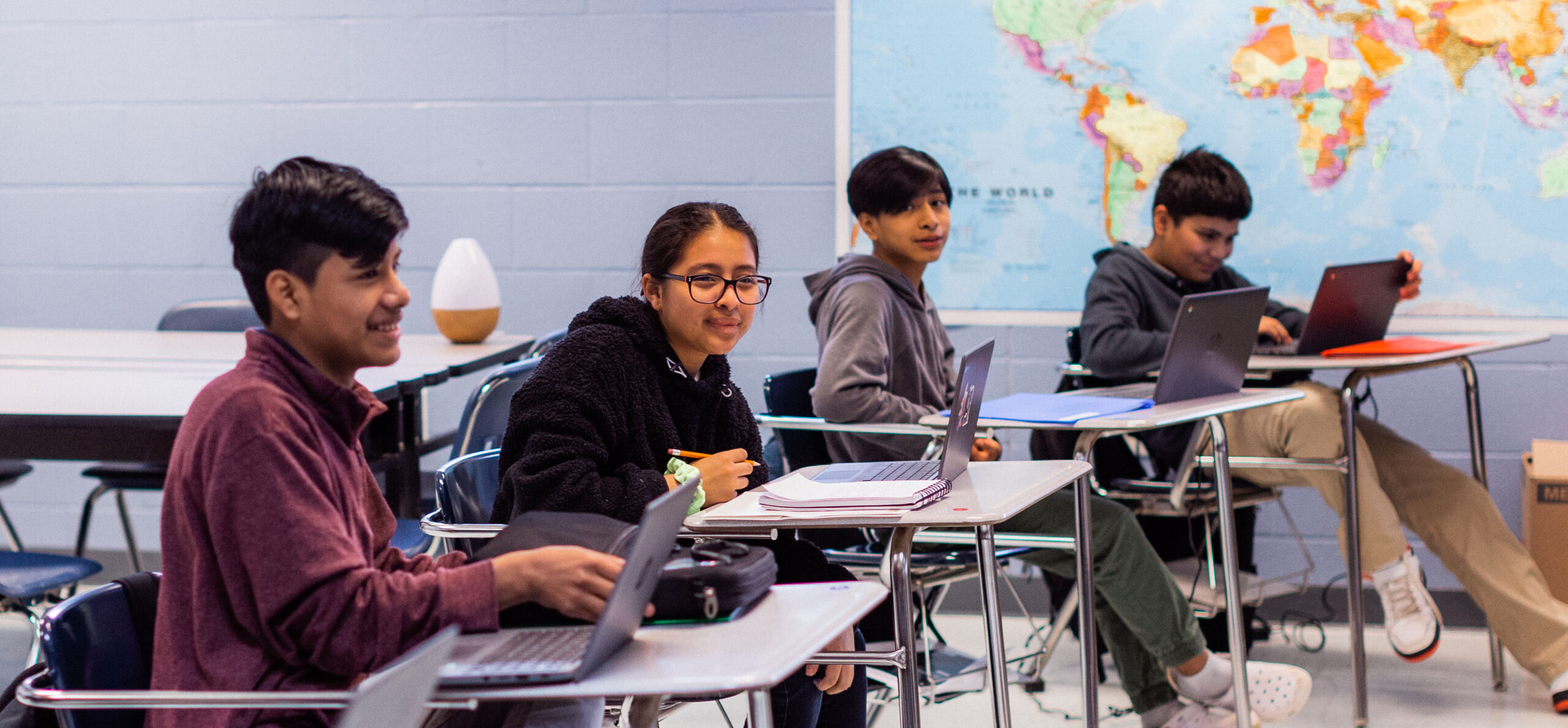
Our Catalytic Role
Since Overdeck Family Foundation began funding TalkingPoints in 2020, the organization has grown its reach tenfold while continuing to innovate, strengthen its evidence base, and improve its data and organizational infrastructure. Ongoing coaching from the Foundation team and external capacity-building support have helped TalkingPoints build its advisory board, develop organizational structures and supporting processes for growth, and expand its research and data capacity through partnership with Strategic Data Project fellows.

Heejae LimFounder and CEO
Heejae Lim, Founder and CEO of TalkingPoints, previously advised the Gates Foundation and Teach First U.K. at McKinsey & Company; worked on education reform to drive data-driven decision-making for public schools in the Middle East; and served as Chief of Staff to a special advisor to the Secretary of Education in the U.K. She also worked on the development of Aspire Public Schools’ teacher training program, now known as Alder Education. Heejae has been recognized as a TED Fellow, Stanford Social Innovation Fellow, Roddenberry Fellow, Ashoka Changemaker, Elevate Prize winner, and Forbes 30 Under 30 for education recipient.
TalkingPoints
PortfolioEarly Impact
Our Funding to Date$3,903,000 since 2020
Founded2015
HQSan Francisco, CA
Websitetalkingpts.org
